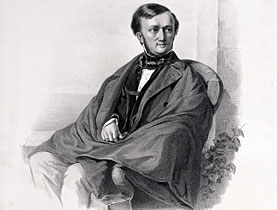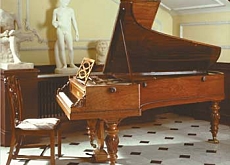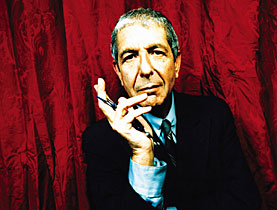Zurich exile shaped Wagner’s creative genius

The nine years that controversial German composer Richard Wagner spent in Zurich exile have been hailed by an exhibition as the most formative period of his career.
Wagner composed much of his opera epic, The Ring Cycle, during his stay in the city and wrote a number of essays – including “Judaism in Music” that was later adopted by the Nazis.
Wagner fled to Zurich in 1849, at the age of 36, having narrowly avoided arrest for his political involvement in the May uprising in Dresden, where he had been living.
His arrival marked the beginning of a transformation during which the young composer redefined his ideas of art and introduced new artistic concepts.
In its exhibition which runs until mid-November, the Bärengasse Museum in Zurich has recreated Wagner’s life in the city between 1849 and 1858 – the years it describes as “among the most formative and productive of his whole life”.
The period was marked as a testing ground for Wagner’s theories on the “music of the future” and of “total artwork” – expressing his idea of combining various arts such as music, song, dance and poetry.
Zurich also provided the backdrop for the bulk of his signature Ring operas, comprising the Rhinegold, the Valkyrie, Siegfried and Twilight of the Gods.
Reinvention of the artist
“Wagner reinvented himself both as an artist and as a person when he came to Zurich. He changed from being an employed conductor and composer to becoming a freelance composer and writer, which was a new concept for his time,” exhibition curator Eva Hanke told swissinfo.
The nine years of residence also produced moments of controversy, including an affair with the wife of a friend that led to his undignified departure and his attack on Jews as a harmful element in German culture.
Wagner’s anti-semitic pronouncements later served as an inspiration to Adolf Hitler, who absorbed the composer’s writings and music into the Nazi propaganda machine. But the writings were not published in Zurich for some time, and did not cause much of a stir when they appeared.
“At the time it was difficult for Jews to settle in Switzerland, and there were only a handful in Zurich, so his thoughts on the subject did not have much of an impact here,” Hanke said.
The Bärengasse museum has exhibited the original asylum documents from the cantonal police along with a reproduction of a drawing room in which Wagner would have introduced his music to Zurich society. In addition, the exhibition includes samples of his music and period instruments.
Affairs and eccentricity
Before coming to Zurich, Wagner had already attracted attention with his operas, The Flying Dutchman and Tannhäuser, and his reputation steadily grew in spite of financial hardship and an increasingly strained marriage.
The artistic elite quickly took him in, and in 1853 Wagner publicly read his Ring opera for the first time at the Hotel Baur au Lac along the shores of lake Zurich. The hotel also witnessed the first public performance of the Valkyrie three years later.
While in Zurich, Wagner also started composing the artistic opera Tristan and Isolde, although it was not premiered until after he left the city.
Part of the inspiration for this opera was Wagner’s infatuation with the wife of a local silk merchant, Mathilde Wesendonck. The scandal of this “affair” was one of the reasons Wagner left Zurich, but he was also feeling constrained by the small, conservative city.
“He felt more and more isolated and it reached a point that he could not bear it any more,” said Hanke. “His letters show his opinion of Zurich had changed from the time he arrived and found friends in the artistic scene to more negative feelings when he left.
“He was very much the focal point of the Zurich art scene, but he also divided opinion between those who admired his work and loved him and those who hated him,” Hanke added. “It seems that he was just too eccentric for the conservative and religious city.”
swissinfo, Matthew Allen in Zurich
Richard Wagner was born in Leipzig, Germany, on May 22, 1813. His father died when he was six months old after which his mother married the artist Ludwig Geyer.
Wagner wrote his first opera, The Fairies, and three years later married the actress Christine Wilhelmine “Minna” Planer. In 1842, the couple moved to Dresden where Wagner was appointed conductor at the Royal Saxon court.
In Dresden, he became involved with a leftwing political movement calling for constitutional reforms in the state of Saxony. This led to an unsuccessful uprising in May 1849 and Wagner was forced to flee to Zurich as a political refugee to escape arrest for his involvement.
In Zurich, Wagner set about composing the Ring Cycle opera and wrote numerous articles expressing his theories of art.
After nine years in Zurich, he left for Venice in 1858 and then took up residence in Paris a year later. His political ban in Germany was lifted in 1861 and Wagner returned to his home country, only to be hounded out after another scandalous affair four years later, returning to Switzerland – this time to lake Lucerne.
After returning to Germany once again, Wagner died of a heart attack while on holiday in Venice on February 13, 1883.

In compliance with the JTI standards
More: SWI swissinfo.ch certified by the Journalism Trust Initiative



You can find an overview of ongoing debates with our journalists here. Please join us!
If you want to start a conversation about a topic raised in this article or want to report factual errors, email us at english@swissinfo.ch.